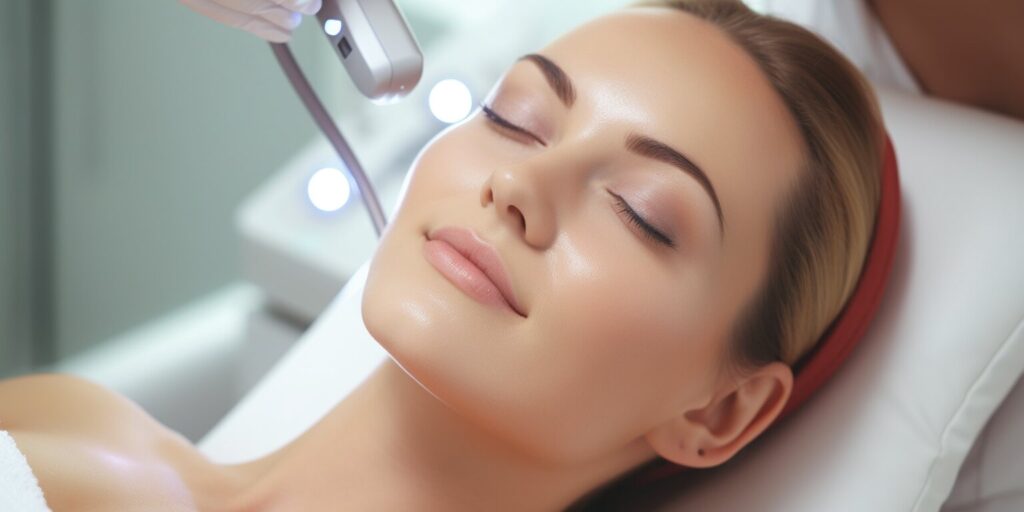When it comes to achieving healthy, glowing skin, many people focus on skincare products and treatments, but they often overlook the crucial role that nutrition plays in skin health. Your skin is the body’s largest organ, and it requires proper nourishment to maintain its youthful appearance and resilience. In this article, we will explore the importance of nutrition in skin health and provide valuable tips from med spa experts to help you achieve radiant skin.
The Connection Between Nutrition and Skin Health
The link between nutrition and skin health is well-established in the field of dermatology. What you eat can significantly impact the way your skin looks and feels. Proper nutrition provides essential vitamins, minerals, and antioxidants that promote skin regeneration, repair, and protection against various environmental stressors.
1. Hydration Is Key
One of the most fundamental aspects of skin health is staying adequately hydrated. Drinking enough water helps maintain the skin’s moisture levels, preventing dryness, flakiness, and irritation. When you’re dehydrated, your skin can appear dull and lackluster. Med spa experts recommend drinking at least eight glasses of water per day to keep your skin hydrated from the inside out.
2. Nutrient-Rich Foods
A balanced diet rich in essential nutrients is essential for healthy skin. Med spa professionals advise incorporating the following nutrients into your diet:
a. Vitamin C
Vitamin C is a powerful antioxidant that helps protect the skin from damage caused by free radicals. It also plays a crucial role in collagen production, which is essential for maintaining skin elasticity and reducing the appearance of fine lines and wrinkles. Citrus fruits, strawberries, and bell peppers are excellent sources of vitamin C.
b. Omega-3 Fatty Acids
Omega-3 fatty acids help maintain the skin’s lipid barrier, keeping moisture in and irritating out. Foods like fatty fish (salmon, mackerel, and sardines), flaxseeds, and walnuts are rich in omega-3s and can contribute to smoother, suppler skin.
c. Vitamin E
Vitamin E is another antioxidant that protects the skin from oxidative stress. It also helps with skin repair and healing. Nuts, seeds, and spinach are good sources of vitamin E.
d. Zinc
Zinc is essential for regulating oil production and preventing acne breakouts. It also promotes skin cell turnover and repair. You can find zinc in foods like lean meats, whole grains, and legumes.
3. Antioxidant-Rich Foods
Antioxidants play a vital role in skin health by neutralizing free radicals and reducing inflammation. Med spa experts recommend incorporating foods like berries, dark leafy greens, and green tea into your diet to boost your antioxidant intake.
Foods to Limit for Better Skin Health
While certain foods can promote healthy skin, others may contribute to skin issues. Med spa professionals advise limiting or avoiding the following:
1. Sugar
High sugar intake can lead to increased inflammation and glycation, a process that damages collagen and elastin, leading to premature aging. Reducing your sugar consumption can help maintain youthful-looking skin.
2. Processed Foods
Processed foods are often high in salt, unhealthy fats, and additives that can contribute to skin problems like acne and inflammation. Opt for whole, unprocessed foods whenever possible.
3. Dairy
Dairy products, particularly full-fat versions, have been linked to acne breakouts in some individuals. If you notice a correlation between dairy consumption and skin issues, consider reducing your dairy intake or choosing dairy alternatives.
The Impact of Diet on Common Skin Conditions
The connection between diet and skin health is not only relevant for achieving a radiant complexion but also for managing and preventing common skin conditions. Understanding how your dietary choices can affect skin issues is crucial for individuals looking to improve their overall well-being. Here, we delve into the impact of diet on some prevalent skin conditions.
Acne and Diet: What You Need to Know
Acne, a skin condition characterized by the development of pimples, blackheads, and whiteheads, can be influenced by dietary factors. High-glycemic foods like sugary snacks and refined carbohydrates can lead to insulin spikes, increasing the production of skin oils and contributing to acne breakouts. Dairy products have also been linked to acne in some individuals due to their potential to trigger hormonal changes.
Eczema and Nutrition: Managing Flare-Ups with Food
Eczema, a chronic skin condition marked by itchy and inflamed skin, may benefit from dietary adjustments. Certain foods, such as dairy, gluten, and processed sugars, have been known to exacerbate eczema symptoms in some individuals. On the flip side, incorporating anti-inflammatory foods like fatty fish, leafy greens, and probiotic-rich yogurt can help soothe eczema flare-ups and promote skin healing.
Rosacea-Friendly Foods: Soothing Redness and Irritation
Rosacea is a condition characterized by redness, visible blood vessels, and sometimes acne-like bumps on the face. Spicy foods, alcohol, and hot beverages are common triggers for rosacea flare-ups. Opting for a diet rich in anti-inflammatory foods, such as turmeric, green tea, and foods high in omega-3 fatty acids, can help reduce redness and discomfort associated with rosacea.
In conclusion, making informed dietary choices can significantly impact the management and prevention of common skin conditions like acne, eczema, and rosacea. Understanding the link between diet and skin health empowers individuals to take a proactive approach to achieving a healthier and clearer complexion.
Superfoods for Super Skin
The quest for radiant, healthy skin often leads us to explore various skincare products and treatments. However, the foundation for achieving that coveted glow lies in our daily diet. Incorporating superfoods into your meals can give your skin the essential nutrients it needs to thrive. Here are some superfoods that can work wonders for your skin:
1. Berries: Berries like blueberries, strawberries, and raspberries are packed with antioxidants that combat free radicals, reducing skin damage and premature aging. These colorful fruits also contain vitamin C, which promotes collagen production for firm and youthful skin.
2. Green Tea: Green tea is rich in polyphenols, which have anti-inflammatory and antioxidant properties. Drinking green tea can help protect your skin from UV damage, reduce redness, and improve complexion.
3. Avocado: Avocado is a fantastic source of healthy fats, particularly monounsaturated fats, which keep your skin moisturized and supple. It’s also loaded with vitamins E and C, providing a double dose of skin-nourishing antioxidants.
4. Fatty Fish: Salmon, mackerel, and sardines are rich in omega-3 fatty acids, which maintain the skin’s lipid barrier, preventing moisture loss and inflammation. These fatty acids also help reduce the risk of skin conditions like acne and psoriasis.
5. Spinach: This leafy green is high in vitamins A and C, which support skin cell repair and collagen production. Its high folate content contributes to healthy DNA replication, maintaining youthful skin.
By incorporating these superfoods into your diet, you can provide your skin with the nutrients it needs to stay healthy, vibrant, and resilient. Remember, a balanced diet benefits your skin and contributes to your overall well-being.
Consultation with a Med Spa Expert
While a healthy diet can significantly improve your skin’s appearance, it’s essential to remember that individual skin types and concerns vary. Consulting with a med spa expert or a dermatologist can provide you with personalized recommendations and treatment options tailored to your specific needs.
Med spa professionals can offer a range of treatments to complement your skincare routine and nutrition efforts. These may include facials, chemical peels, microdermabrasion, and laser therapies, among others. These treatments can target specific skin issues and enhance the overall health and appearance of your skin.
Conclusion
Incorporating a balanced diet rich in essential nutrients and antioxidants is crucial to achieving and maintaining healthy, radiant skin. Proper nutrition can help you address a wide range of skin concerns, from dryness and dullness to premature aging and acne breakouts. Remember to stay hydrated, prioritize nutrient-rich foods, and consult with med spa experts or dermatologists for personalized skincare advice and treatments. By taking care of your skin from the inside out, you can enjoy the benefits of a glowing complexion for years to come.



